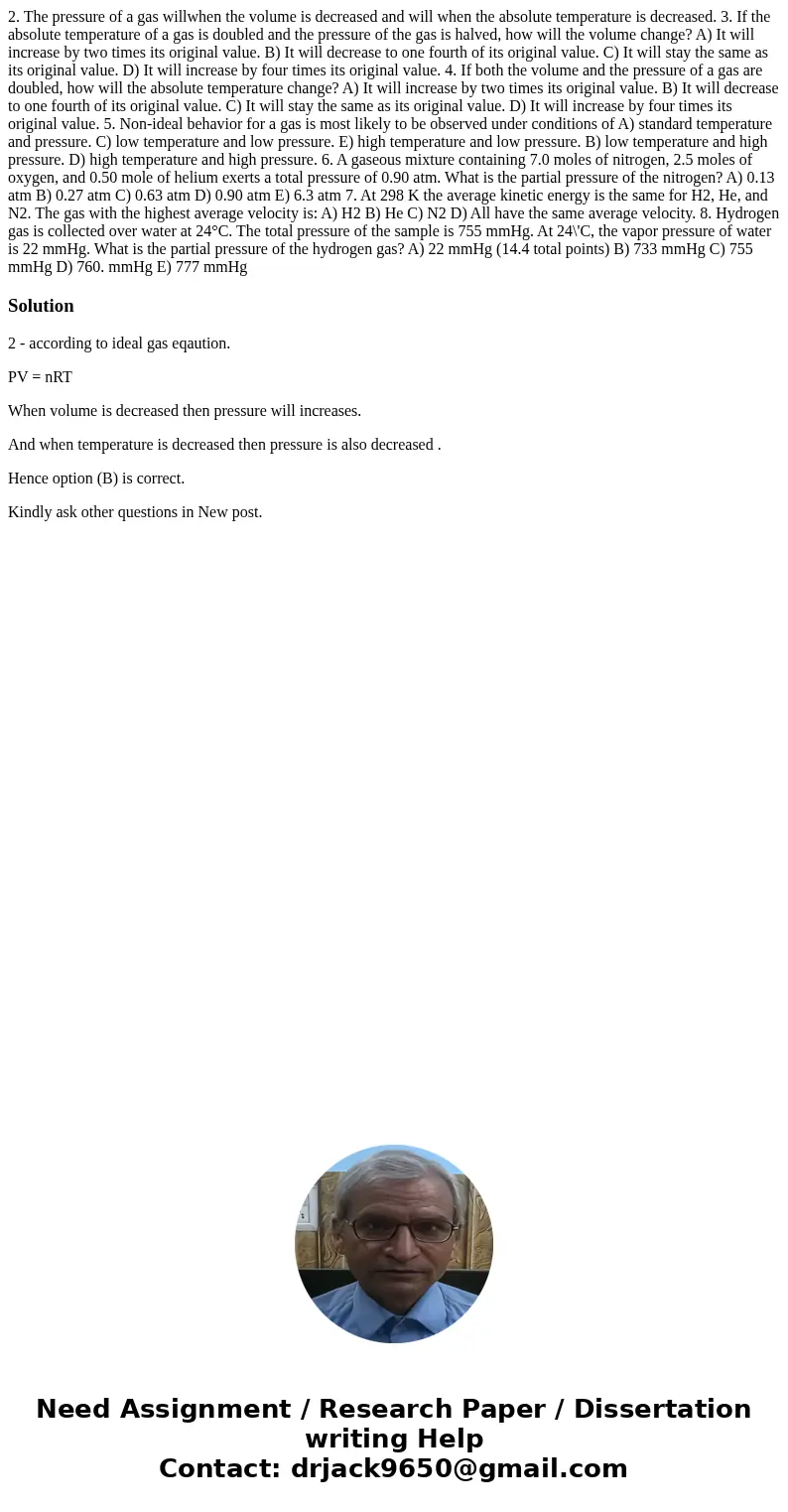2 The pressure of a gas willwhen the volume is decreased and
2. The pressure of a gas willwhen the volume is decreased and will when the absolute temperature is decreased. 3. If the absolute temperature of a gas is doubled and the pressure of the gas is halved, how will the volume change? A) It will increase by two times its original value. B) It will decrease to one fourth of its original value. C) It will stay the same as its original value. D) It will increase by four times its original value. 4. If both the volume and the pressure of a gas are doubled, how will the absolute temperature change? A) It will increase by two times its original value. B) It will decrease to one fourth of its original value. C) It will stay the same as its original value. D) It will increase by four times its original value. 5. Non-ideal behavior for a gas is most likely to be observed under conditions of A) standard temperature and pressure. C) low temperature and low pressure. E) high temperature and low pressure. B) low temperature and high pressure. D) high temperature and high pressure. 6. A gaseous mixture containing 7.0 moles of nitrogen, 2.5 moles of oxygen, and 0.50 mole of helium exerts a total pressure of 0.90 atm. What is the partial pressure of the nitrogen? A) 0.13 atm B) 0.27 atm C) 0.63 atm D) 0.90 atm E) 6.3 atm 7. At 298 K the average kinetic energy is the same for H2, He, and N2. The gas with the highest average velocity is: A) H2 B) He C) N2 D) All have the same average velocity. 8. Hydrogen gas is collected over water at 24°C. The total pressure of the sample is 755 mmHg. At 24\'C, the vapor pressure of water is 22 mmHg. What is the partial pressure of the hydrogen gas? A) 22 mmHg (14.4 total points) B) 733 mmHg C) 755 mmHg D) 760. mmHg E) 777 mmHg 
Solution
2 - according to ideal gas eqaution.
PV = nRT
When volume is decreased then pressure will increases.
And when temperature is decreased then pressure is also decreased .
Hence option (B) is correct.
Kindly ask other questions in New post.

 Homework Sourse
Homework Sourse